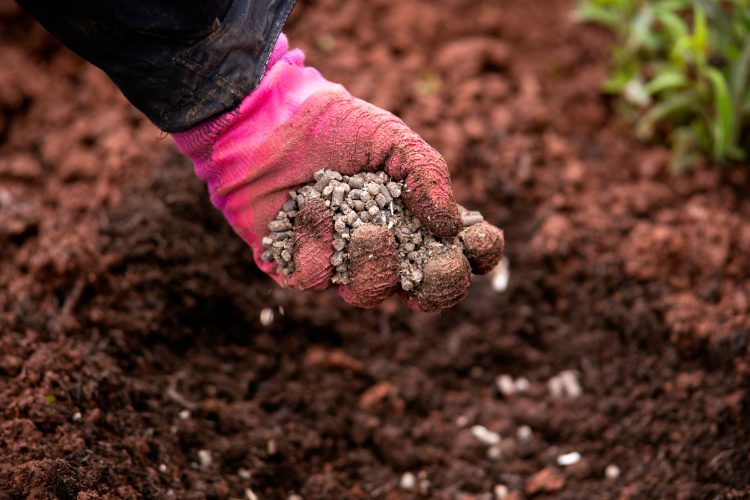Carbon emissions from fertilisers could reduce by 80 percent by 2050
- Like
- Digg
- Del
- Tumblr
- VKontakte
- Buffer
- Love This
- Odnoklassniki
- Meneame
- Blogger
- Amazon
- Yahoo Mail
- Gmail
- AOL
- Newsvine
- HackerNews
- Evernote
- MySpace
- Mail.ru
- Viadeo
- Line
- Comments
- Yummly
- SMS
- Viber
- Telegram
- Subscribe
- Skype
- Facebook Messenger
- Kakao
- LiveJournal
- Yammer
- Edgar
- Fintel
- Mix
- Instapaper
- Copy Link
Posted: 10 February 2023 | Grace Galler | No comments yet
Researchers from the University of Cambridge have said carbon emissions from fertilisers could be reduced to one-fifth of the current levels by 2050.


By calculating the carbon footprint for the full life cycle of fertilisers, researchers at the University of Cambridge have claimed that carbon emissions could be reduced by as much as 80 percent by 2050.
The researchers highlighted that two thirds of emissions from fertilisers take place after they are spread on fields, and went on to say that one third of emissions come from production processes.
“Carbon emissions from fertilisers need to be urgently reduced”, says the researchers. “However, this must be balanced against the need for global food security”.
The use of nitrogen-based fertilisers is “already known to be a major source of greenhouse gas emissions” however the researchers have that this this study is the first time that their overall contribution, “from production to deployment”, has been fully quantified.
Specifically, the analysis revealed that manure and synthetic fertilisers emit the equivalent of 2.6 gigatonnes of carbon per year, something that they say is more than global aviation and shipping combined.
“In order to reduce emissions, it’s important for us to identify and prioritise any interventions we can make to make fertilisers less harmful to the environment,” explained co-author Dr André Cabrera Serrenho from Cambridge’s Department of Engineering.
“But if we’re going to do that, we first need to have a clear picture of the whole lifecycle of these products. It sounds obvious, but we actually know very little about these things.”
According to prior research, an estimated that 48 percent of the global population are fed with crops grown with synthetic fertilisers, with the world’s population is expected to grow by 20 percent until 2050.
Suggesting actions to take, the researchers said that “a combination of scalable technological and policy solutions are needed to reduce fertiliser emissions while maintaining food security”. However, they have estimated that if such solutions could be implemented at scale, the emissions from manure and synthetic fertilisers could be reduced by as much as 80 percent, to one-fifth of current levels, without a loss of productivity.
“Incredibly, we don’t actually know how many chemicals we produce globally, where they end up, where and how they accumulate, how many emissions they produce, and how much waste they generate,” said Serrenho.
In their analysis, the researchers found that the majority of emissions for fertilisers do not occur during production but rather during their use.
“It was surprising that this was the major source of emissions,” said Serrenho. “But only after quantifying all emissions, at every point of the lifecycle, can we then start looking at different mitigation methods to reduce emissions without a loss of productivity.”
Looking at synthetic fertilisers, the Cambridge researchers claimed that the emissions are “mostly from ammonia synthesis, partly due to chemical reactions used in the production process”.
The researchers expressed that the most effective mitigation at the production stage would be for the industry to decarbonise heating and hydrogen production. In addition, they advised that fertilisers could be mixed with chemicals called nitrification inhibitors, which prevent bacteria from forming nitrous oxide. However, a drawback of these chemicals is that they are “likely to make fertilisers more expensive”.
“If we’re going to make fertilisers more expensive, then there needs to be some sort of financial incentive to farmers and to fertiliser companies,” said Serrenho. “Farming is an incredibly tough business as it is, and farmers aren’t currently rewarded for producing lower emissions.”
Highlighting the “single most effective way to reduce fertiliser-associated emissions”, Serrenho said that reducing the overall amount of fertilisers that we use would be the best option.
“We’re incredibly inefficient in our use of fertilisers,” said Serrenho. “We’re using far more than we need, which is economically inefficient and that’s down to farming practices. If we used fertiliser more efficiently, we would need substantially less fertiliser, which would reduce emissions without affecting crop productivity.”
“There are no perfect solutions,” said Serrenho. “We need to rethink how we produce food, and what sorts of economic incentives work best. Perhaps that means paying farmers to produce fewer emissions, perhaps that means paying more for food. We need to find the right mix of financial, technological and policy solutions to reduce emissions while keeping the world fed.”
Related topics
Environment, Quality analysis & quality control (QA/QC), Research & development, Sustainability









